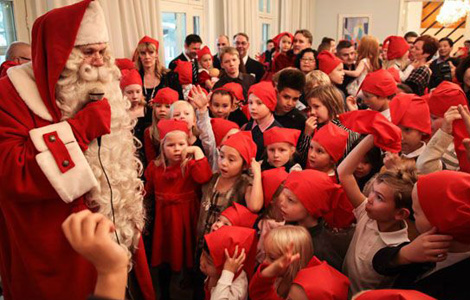PISA achievements are just a hollow triumph
Updated: 2013-12-11 07:20
By Berlin Fang (China Daily)
|
||||||||
The release of the 2012 results for the Programme for International Student Assessment shows that students from Shanghai scored the highest in math, reading and science. When CNN first released the results, many people in the United States reacted with frustration and concern at the US' low ranking. Arne Duncan, the US secretary of education, even said that the results show a "picture of educational stagnation".
As a city, Shanghai deserves some praise for the results. However, education is as complex as human nature itself. We should be cautious about establishing causal relationships without rigorous research, and the reporting on PISA assessments was the epitome of bad research. The sampling, for instance, defies rules that entry-level researchers would blush to violate. Why is Shanghai, an outlier in China in terms of educational resources, selected to represent China? Comparing a city with other countries is preposterous. It does not flatter most Chinese to see the city outperform the rest of the world. Some may even suggest there should be equal access to educational resources.
The conclusions people draw from the PISA results are only as valid as the design of the PISA project. The CNN report on the assessment cites respect for teachers as one of the success factors of Shanghai, which is simply the confirmation of a misconception. Traditional Chinese values are undergoing tremendous changes with the shifts in demographics. Most Shanghai students are single children and they have a strong sense of personal rights and privileges. They are becoming increasingly assertive or even aggressive, to the extent that teachers feel they get no respect and are becoming disillusioned. A Chinese best-seller in 2012, The Workerbees: A Record of Young College Teachers, portrays the misery they feel.
Commenting on the PISA results, David Stout of Time Magazine claims that China is "cheating the world student rankings system". Some of my US friends have a similar impression. But I tend to think that education alarmists in the US just want to use such assessments, devoid of any provable validity and reliability, to jolt US education out of its complacency.
Chinese people rarely have any illusions about the quality of education in China, and the PISA results are often dismissed or laughed at. Critics of the existing education system have become increasingly vocal in calling attention to the entrenched problems, such as the lack of citizenship and life skills training, the emphasis on rote learning, and the long hours students spend studying compared to their international peers. Few people bask in the glory of Shanghai's PISA performance.
Richer Chinese, from Shanghai especially, like to send their children to the US or Europe to study. It would be interesting if these children came to America or Europe and found the trend was for Chinese-style learning.
When it comes to comparisons of national education systems and achievements, the PISA results are largely useless, if not entirely misleading. Learning from other countries is useful only when it is possible to unmistakably identify some transferable practices that have proven to work. There may be multiple educational paths to "success", and we would do better to reach some kind of agreement on what constitutes success.
The author is a US-based instructional designer, literary translator and columnist writing on cross-cultural issues.
(China Daily 12/11/2013 page8)
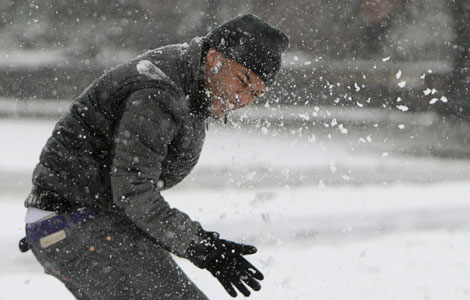
 Snowstorm blasts mid-America
Snowstorm blasts mid-America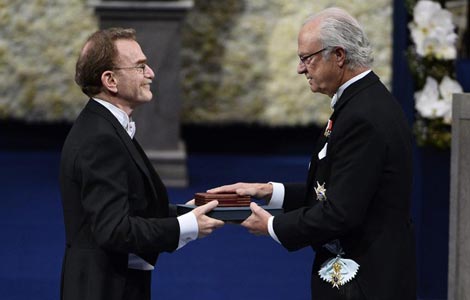
 2013 Nobel Prize award ceremony in Stockholm
2013 Nobel Prize award ceremony in Stockholm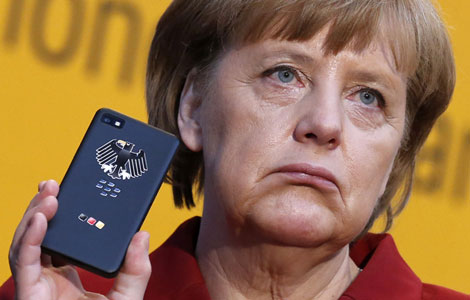
 Reuters images of the year - politics
Reuters images of the year - politics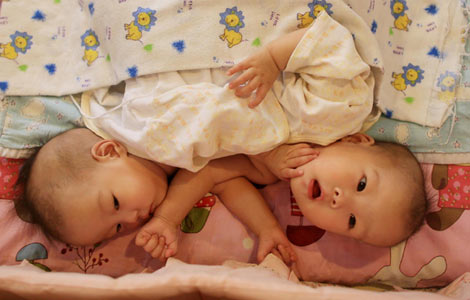
 Conjoined babies waiting for surgery
Conjoined babies waiting for surgery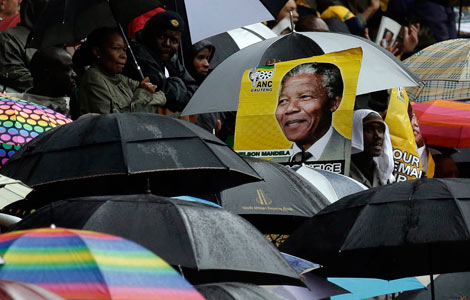
 Chinese say their goodbyes
Chinese say their goodbyes
 Obama shakes hands with Cuban president Castro
Obama shakes hands with Cuban president Castro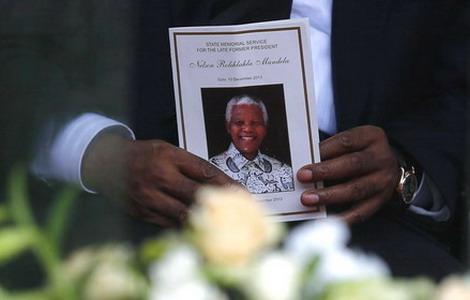
 S Africa holds memorial service for Mandela
S Africa holds memorial service for Mandela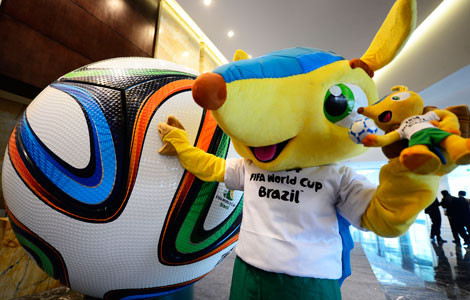
 World Cup mascot makes China debut
World Cup mascot makes China debut
Most Viewed
Economy on path of steady growth[1]|chinadaily.com.cn
Gay sex poses HIV threat for youth|Society|chinadaily.com.cn
Japan to release videos of Chinese activists|Asia-Pacific|chinadaily.com.cn
Gay sex blamed for rise in young students with HIV/AIDS|Society|chinadaily.com.cn
More young adults living with parents|Americas|chinadaily.com.cn
Magazine seeks Guangzhou expat families to tour Fujian[1]|chinadaily.com.cn
World's longest sightseeing escalator awaits you in Central China[4]|chinadaily.com.cn
Dai Ethnic Group[1]|chinadaily.com.cn
Minmetals unit offers sponge city solutions for rainfall usage|Business|chinadaily.com.cn
Licenses revoked in anti-porn campaign|Society|chinadaily.com.cn
Editor's Picks

|

|

|

|

|
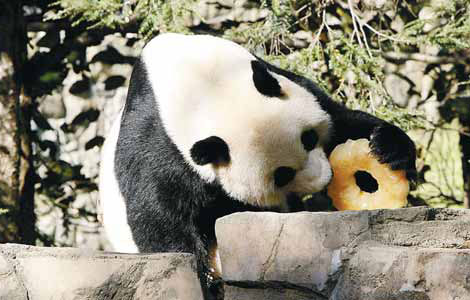
|
Today's Top News
US Congress negotiators reach budget deal
Retirees saddled with kids' costs
Bar lowered for private pilots
Building impact reports will be released
Obama urges Congress to pass budget deal
Beijing announces theme, priorities of APEC
Battle against counterfeit goods enters a new phase
Chinese say their goodbyes to Mandela
US Weekly

|

|
